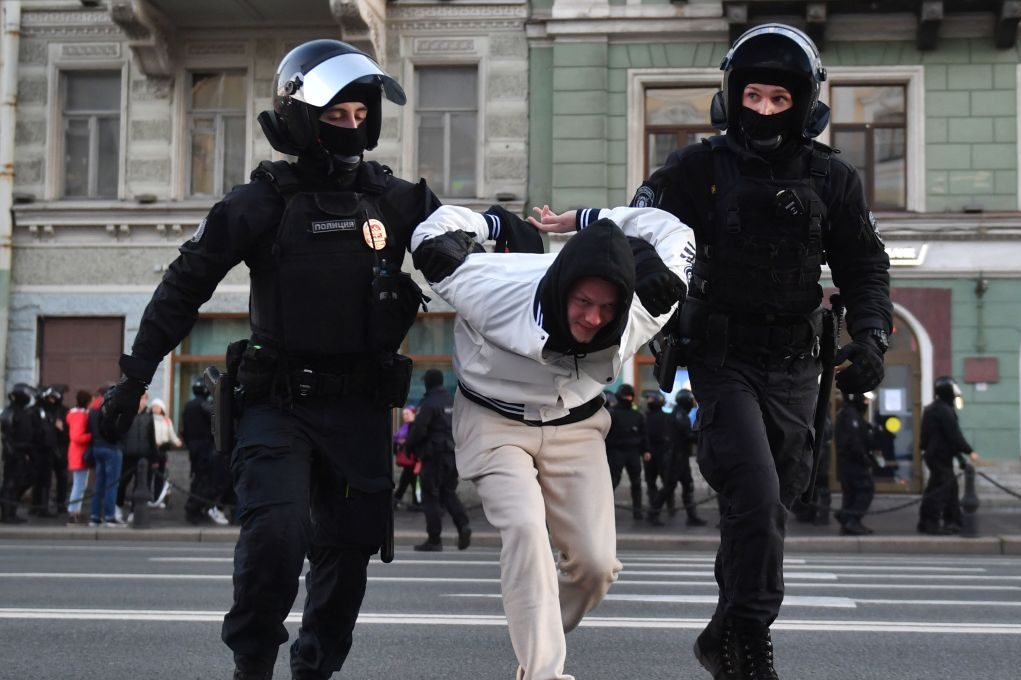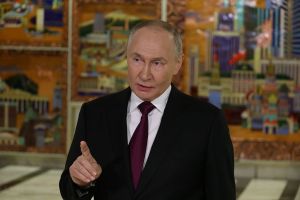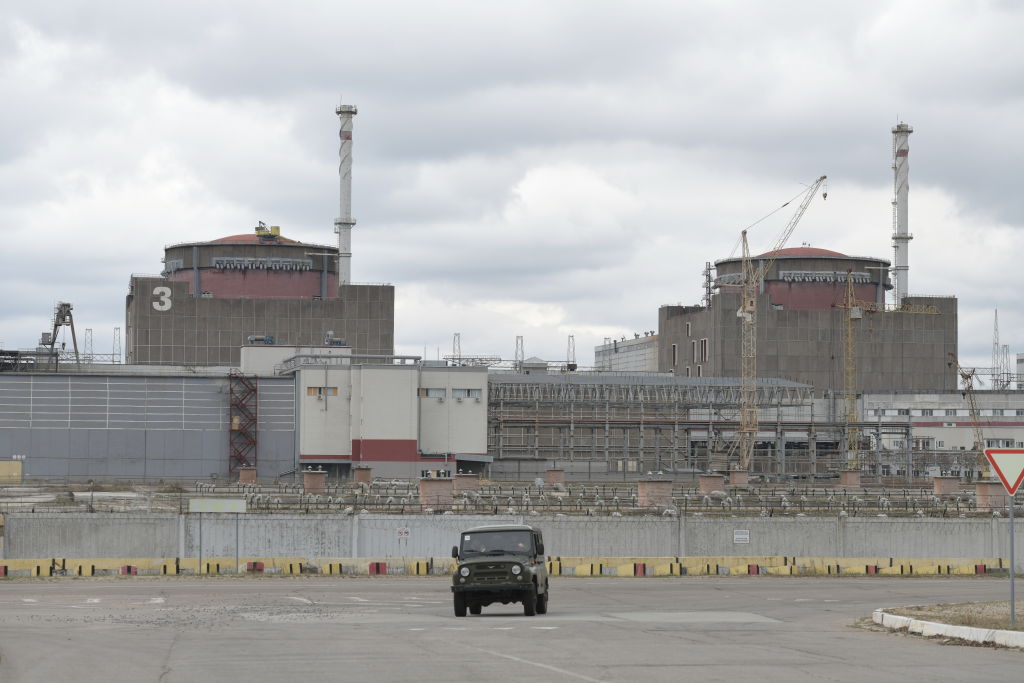Russia is gearing up for its annual festival of state-sponsored militarist kitsch that are the May 9 Victory Day celebrations, albeit in rather more limited form thanks to security concerns surrounding the ongoing war. Amongst all this, it is all too easy to forget that not everyone is consumed with nationalist pageantry. Instead, what is in many ways so much more striking is that there is still an active, if beleaguered, civil society in this country.
To be sure, open protests against the war have become increasingly small in scale. This is an authoritarian regime sliding into full-blown totalitarianism, which has been cracking down viciously on any such “fifth columnists” Tens of thousands were rounded up, arrested, fined, beaten and imprisoned in the early days of the war precisely as a dramatic gesture of the Kremlin’s ruthless determination.
The more Russians protest, the more their fellows realize they are not alone
Since then, protest against the war has largely been evident in small-scale and personal acts of defiance, from graffiti and individual vigils to arson attacks. Sometimes it has taken imaginative forms. The artist Alexandra Skochilenko stands accused of replacing supermarket price labels with messages criticizing the war, for example. She faces up to a decade in prison under draconian laws against spreading so-called lies about the military.
However, not everything is about the war. Opposition leader Alexei Navalny is languishing in prison, his sentence likely to be periodically extended to keep him there so long as the Kremlin fears him. Other figures such as Vladimir Kara-Murza and Ilya Yashin have also ended up behind bars. The rest of the opposition leadership is likewise in detention or out of the country, and the fledgling national movement Navalny established has been dismantled.
However, the repression and the lack of any remaining national movements does not mean civil society and the impulses and discontent behind it have gone away. If anything, Russians have all the more reasons to be unhappy. Last year real wages shrank by 1 percent, with this year promising greater pain to most, and funds for public services are squeezed because of sanctions and the war. Meanwhile, the last vestiges of democratic input such as direct mayoral elections are being swept away and the risk of mobilization hangs over virtually every adult male.
Instead of being a nation of brainwashed “Z-heads” parroting every toxic propaganda line about the war, or cowed and lumpen subjects sullenly doing whatever they are told, Russians are actually continuing to protest and resist. However, their activities tend to be local, small in scale, and not about the war but practical issues affecting their communities. This is, after all, safer, more likely to achieve something, and of direct consequence to their lives.
Rising utility prices, for example, have triggered small, peaceful protests across the country, sometimes organized by the Communist Party. While nationally the Communists are an opposition party in name only, stage-managed by the Kremlin to give the appearance of pluralism, in the regions there remain activists and even local leaders still willing to challenge the government. Other grounds for protest have ranged from wage arrears to the proposed demolition of historic buildings.
A study based on data gathered by ACLED, the Armed Conflict Location and Event Data Project, identified over 1,200 protests related to the war between January 2022 to mid-February 2023, but another 400 or so about economic, environmental or social concerns. A minority of those war-related protests were actually in favor. Of those, most appear to have been organized by the authorities, but not all. Civil society also includes those with distinctly uncivil views, who organize themselves from the grassroots yet espouse nationalist and discriminatory views. Many of these, like the so-called “turbopatriots,” are increasingly hostile to the Kremlin, but not at all liberals.
The Kremlin and local authorities alike still seem willing to provide some small room for protest, so long as it refrains from criticizing the war or the national leadership. The belief is that this provides society with a necessary pressure valve. However, it also maintains traditions of protest and a belief that society has a right to be heard. Regimes like Putin’s rely on legitimizing themselves through the appearance of mass popular support, leaving the discontented fearing they are isolated and thus best keep quiet. The more Russians protest, the more their fellows realize they are not alone.
That said, it is hardly surprising that this side of Russia gets little attention. With Western journalists so much less able to travel freely around the country — especially with the recent arrest of the Wall Street Journal’s Evan Gershkovich simply for doing his job — they are inevitably less able to observe and report such stories.
Perhaps more to the point, there is a perverse tacit confluence of views between a regime that doesn’t want to admit such protests exist and the more rabidly anti-Kremlin forces who don’t want to recognize that Russians can and do resist. But they continue to do just that.
This article was originally published on The Spectator’s UK website.

























